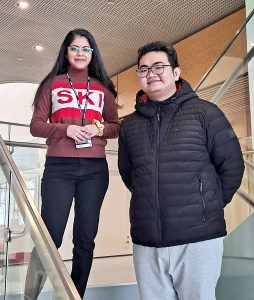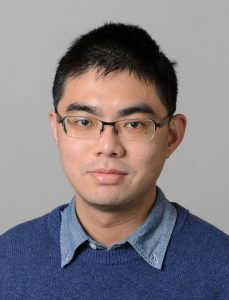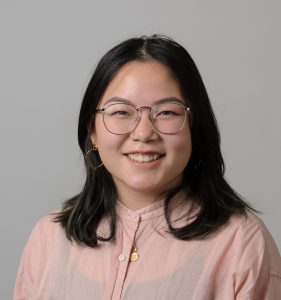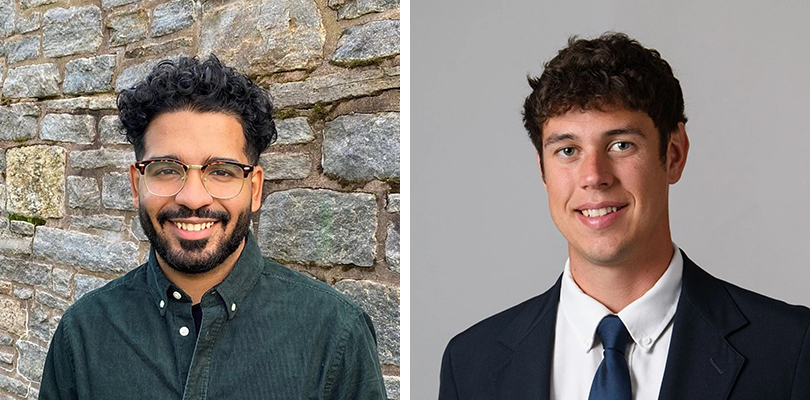
UConn Ph.D. alumni, John Toribio from the IMS Polymer Program, and Kyle Mahoney from Kinesiology, are the co-founders of Zemi Labs Inc. Zemi is revolutionizing hi-tech wearables by creating more comfortable products with greater health monitoring capabilities than traditional devices.
After winning the UConn’s 2024 Innovation Quest competition, they continue to develop and grow their products and company. They secured their first paid pilot, continue to build startup funding, gain more recognition, and now have nine prototype shirts designed to monitor different areas of the upper body.
Dr. Toribio and Mahoney have been setting an example of success for UConn’s Entrepreneurship and Innovation Programs.
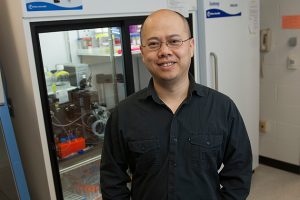
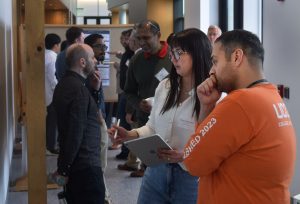
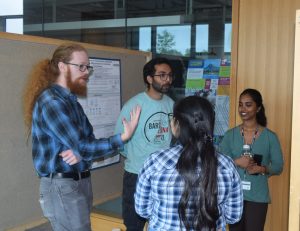
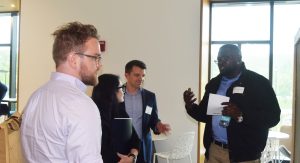
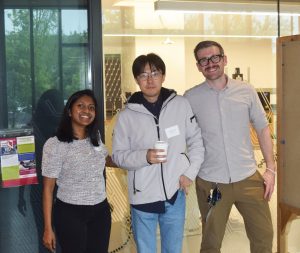
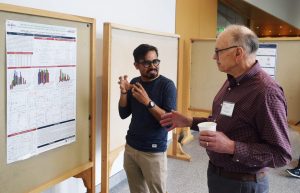
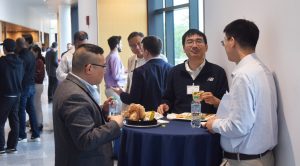
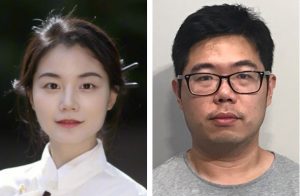
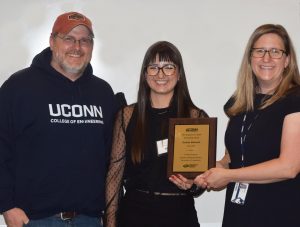
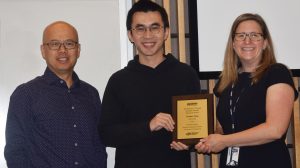
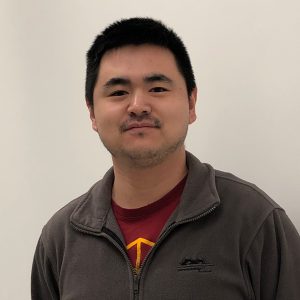
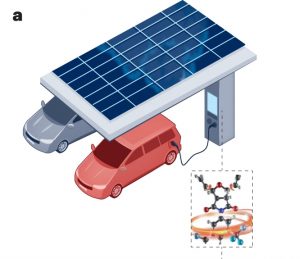 Professors Greg A. Sotzing and Pritish S. Aklujkar have been working with high temperature dielectrics used in high energy density capacitors. They are developing a new generation of all-organic polymer dielectric capacitors that can withstand high temperature conditions, eliminating the need for coolant systems. These capacitors will have a number of applications, including electric-vehicle charging stations and Electromagnetic Aircraft Launch Systems (EMALS) used to catapult jets from aircraft carriers. Their paper, “Chromogenic Identification of Breakdown” was published in Nature Materials, February, 2, 2024. Visit
Professors Greg A. Sotzing and Pritish S. Aklujkar have been working with high temperature dielectrics used in high energy density capacitors. They are developing a new generation of all-organic polymer dielectric capacitors that can withstand high temperature conditions, eliminating the need for coolant systems. These capacitors will have a number of applications, including electric-vehicle charging stations and Electromagnetic Aircraft Launch Systems (EMALS) used to catapult jets from aircraft carriers. Their paper, “Chromogenic Identification of Breakdown” was published in Nature Materials, February, 2, 2024. Visit 